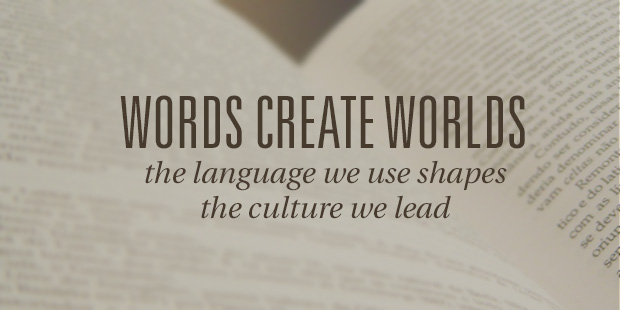
Words Create Worlds – The Language We Use Shapes the Culture We Lead
In his book The Talent Code, Daniel Coyle tells the fascinating story of some experiments that Stanford psychologist and author Carol Dweck has conducted with fifth graders in multiple settings.
The fifth graders were put into two different groups and given the same tests. After completing the first test, the first group was told, “You must be smart at these problems,” and the second group was told, “You must have worked hard at these problems.”
The subtle and small difference made a big impact.
In preparation for the next test, the children were asked if they wanted to try an easier test or a more difficult one. As a group, those affirmed for their hard work wanted the more difficult task and the opportunity to learn. Those affirmed for their intelligence wanted the easy test. Likely they believed intelligence was the chief value, and they feared losing their good standing, their identification as the smart ones. In another round of tests, more difficult in nature, the children who were affirmed for their intelligence gave up much more quickly than those who were affirmed for their hard work.
The students returned to the original test, and the “you must be smart” group scored 20% lower than they did at first. The “you must have worked hard” group improved their scores by 30%.
The point, according to both Coyle and Dweck, is the language “you must have worked hard” fosters motivation and a growth mind-set, while the language “you must be smart” fosters the belief that intelligence is fixed. The small change in language makes a profound impact.
In organizations, in churches, and in families, language matters. Many have said that “words create worlds,” and I have found the phrase to be true. As leaders, the language we use helps shape the cultures we lead.
The words you use to articulate your mission, values, and strategy are essential. You can use language as a powerful tool to bring clarity and direction to the teams you lead and the people you serve. Or you can, as many do, underestimate the power of language and create confusion without careful attention to the words that describe the direction of your organization.
Would you like to learn more about using language as a powerful tool to bring clarity to your church? Connect with an Auxano Navigator and start a conversation with our team.

Tags: Attention, Awareness, Brand, Eric Geiger, Language, Words create worlds












